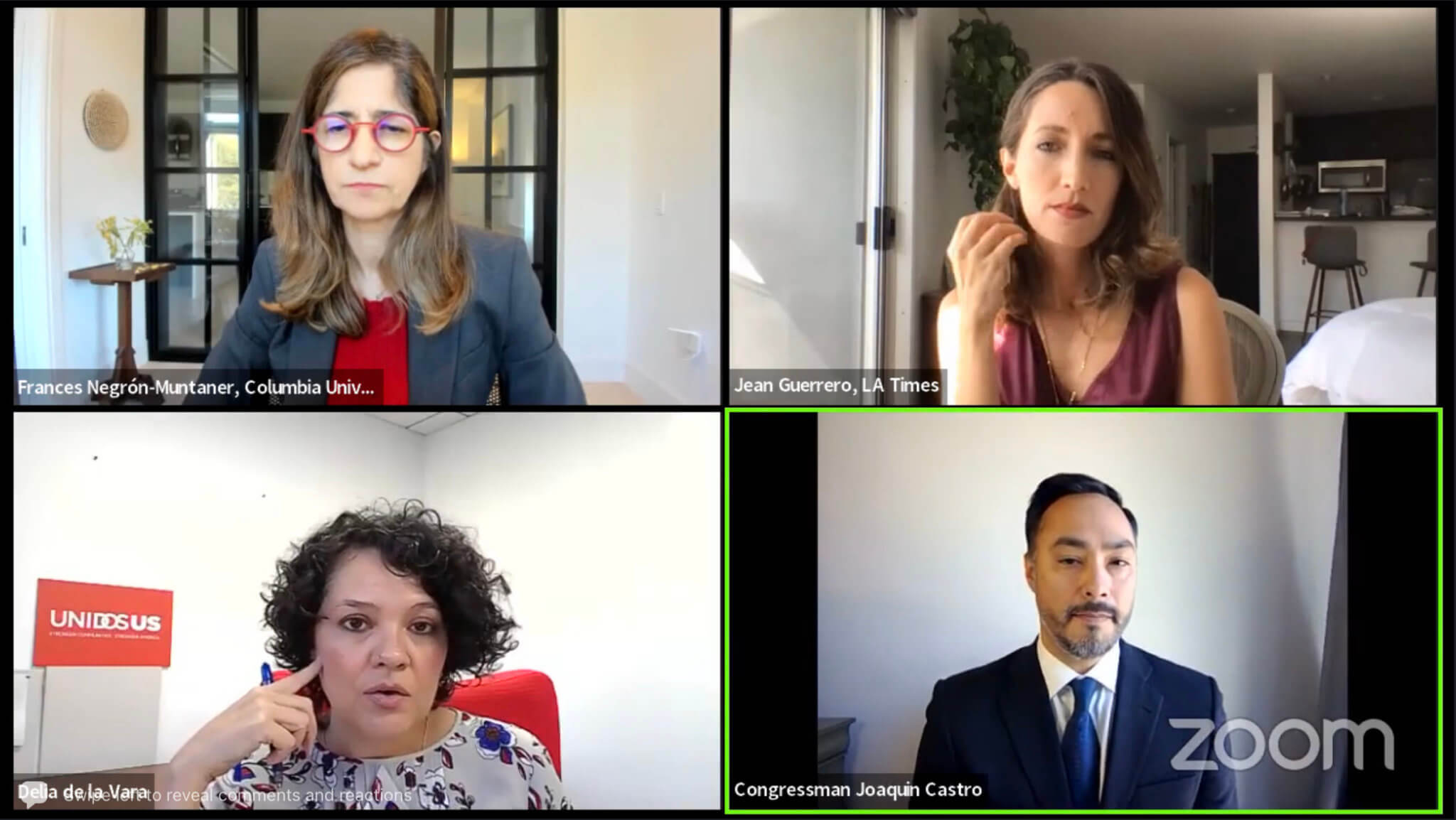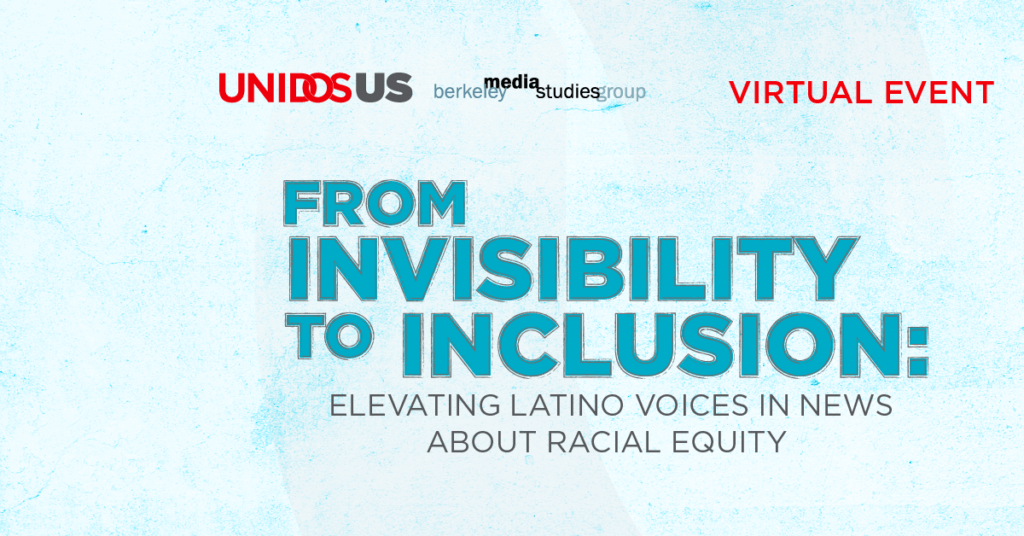Change is impossible without advocacy: The path to increasing Latino representation in media
This week UnidosUS hosted a virtual panel to discuss how we can ensure the diverse narratives of our community are fully included in the telling of the American story.
On October 27, the webinar “Righting Our Narrative: A Path to Inclusive Latino Representation in Media” discussed the lack of representation that persists and how we can come together—across multiple industries, professions, and backgrounds—to ensure the Latino narrative is accurately represented in U.S. media.
The virtual event was moderated by Delia de la Vera, Senior Vice President of Advancement and External Affairs at UnidosUS, and the panelists included: Congressman Joaquin Castro (TX-20); Frances Negrón-Muntaner, Professor and Latino Media Scholar at Columbia University; and Jean Guerrero, Opinion Columnist at the Los Angeles Times.
Keep up with the latest from UnidosUS
Sign up for the weekly UnidosUS Action Network newsletter delivered every Thursday.
This event is part of UnidosUS’s long-standing work on the issue. Back in 1994, UnidosUS—then known as the National Council of La Raza—released two reports which documented the virtual invisibility of Latinos in the media. Back then we noted that “it was easier to see an alien from outer space than someone Hispanic onscreen.” Additionally, we highlighted the almost complete absence of Latinos and Latinas offscreen in the executive ranks of major media companies.
Nearly 30 years later we are still facing this issue.
Congressman Castro has released two Government Accountability Office (GAO) reports that have highlighted the following:
- American media lagged behind other industries in recruitment and retention of Latino workers
- Latinas experience acute underrepresentation in the media industry.
- Latinx leaders are missing from top leadership roles.
Rep. Castro addressed the report by stating why these findings matter:
Professor Negrón-Muntaner gave her analysis on the 2021 NFL halftime show featuring Shakira and Jennifer Lopez, that reflected media stereotypes on Latinas:
“It was the show that got the second highest level of complaints to the FCC. And if you look at those complaints, you see this other narrative of sexuality and Latinas combined. This was also the show that perhaps was the most political in the history of the NFL, yet the complaints didn’t mention any of that, which suggest they don’t see Latinas as political agents.”
Los Angeles Times opinion columnist Jean Guerrero talked about what it’s like working in the industry as a Latina and what newsrooms are doing to rectify inaccurate narratives and portrayals of Latinos that can have negative consequences and can even lead to violence:
“I have seen an increased willingness among managers at various media companies to have conversations about the organizations are doing wrong as far as the framing of stories, as far as the sources who are being chosen, and how their voices are being elevated, and who’s voices are being elevated … but when it comes to actual increased diversity within newsrooms across media organizations broadly speaking, I feel like every step forward has somehow yielded a step backward. And broadly speaking our media organizations remain, what I call, superspreaders of Latino-phobia.”
Though there has been some positive progress, it has come only because of advocacy.
“There is a lot of power within the Latino community to get institutions to change if we come together for that purpose.”-@JoaquinCastrotx at our virtual event discussing the path to inclusive Latino representation in media. #RepresentationMatters
— UnidosUS (@WeAreUnidosUS) October 27, 2022
Rep. Castro also talked about improvements made in the last few years regarding the representation of Latino stories across media:
“With the advent of social, it’s changed the game. It has in a sense democratized the display of talents. There are more platforms now that are easily accessible to display their storytelling talent, to display their abilities.”
Journalist Jean Guerrero concluded with a call to action for improving representation of Latinos in the media industry:
“Even if you’re not in media, you can pressure the media to change its coverage of Latinos to be more representative, accurate, and not endangering and destructive, through letters to the editor, through call outs on social media. There’s just so many ways to be able to use your voice through the digital platforms that we now have to put pressure on these organizations.”
You can watch the full discussion here.

